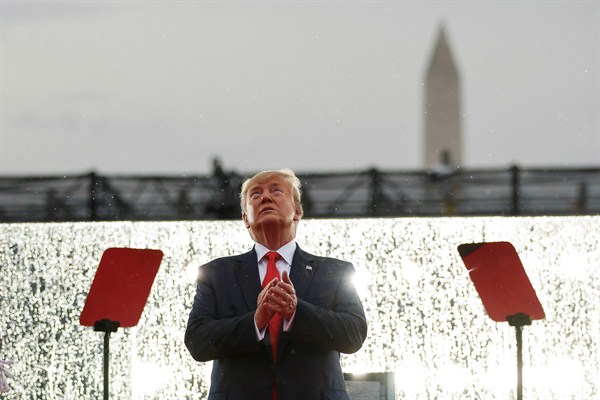The best that can be said about President Donald Trump’s handling of U.S. national security and foreign policy is that it has avoided outright catastrophe—at least so far.
Trump did finish the job of helping local allies in Iraq and Syria destroy the self-styled Islamic State’s “caliphate.” But in every other part of the world, the United States is in a worse position than when he took office, less influential and less respected nearly everywhere.
Most of America’s security partnerships have eroded; some are close to collapse. China and Russia are more assertive and less constrained than they were a few years ago. The Trump administration’s “maximum pressure” campaigns against North Korea, Iran and Venezuela have produced few tangible security gains and seem unlikely to do so anytime soon.

